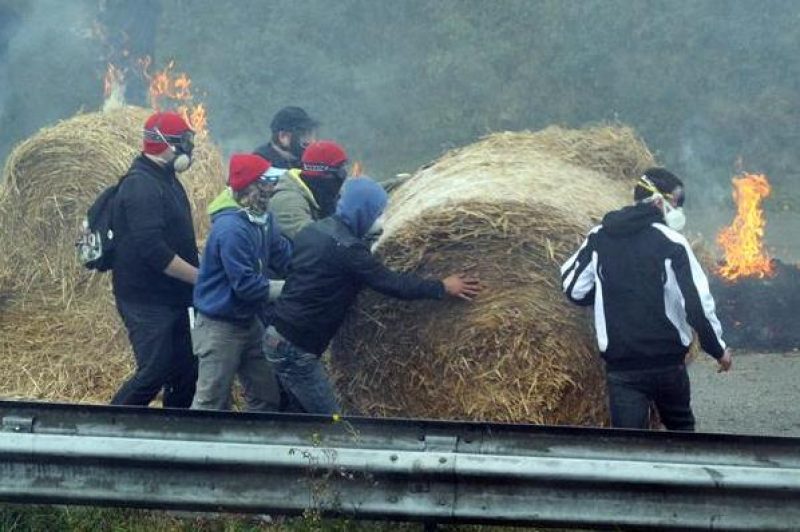For some weeks now, there have been rumblings amongst the agricultural community in France that have risen to a roar, most notably in Brittany where protesters have adopted the bonnet rouge (red hat) as their motif, echoing a 17th-century political movement.
So why the loudly-aired grievances now? A closer examination of the issues shows that they are substantial, with some of the problems faced by French farmers also being faced by their Irish counterparts. The main difference is that our dairying-dominated agricultural industry is looking bright on paper, but there may be some rocks hidden in the shallows that are common property to French and Irish farmers alike
1. The Common Agricultural Policy
The new CAP policy, which is due to enter into law in 2015 will see more emphasis being put on livestock, the environment and youth. “The CAP should be more just, more green and more young,” says Dacian Ciolos, European Commissioner in charge of agriculture at the presentation of the reform. What that means for France (as well as for Ireland) in real terms is a transfer of a good share of the Euro-funds from cereal growers to livestock farmers. The land zones that surround Paris (roughly corresponding with the Ile-de-France region), for example, tend to be oriented towards cereal growing, with little by way of livestock activity. Even though the precise reallocation of funds is still to be defined and refined, the loss of cash to such a region could be in the region of a billion euros, according to some commentators. “This represents 30% to 40% of the aid funds that we receive,” estimates Damien Greffin, President of the FNSEA (nationwide farmers’ union) Ile-de-France.
2. Ecotax
Most people in France agree that this is the straw that broke the camel’s back with regard to the discontent currently entrenched within the agricultural community in France. Even though most of the noise against it is coming from Brittany, it’s the Ile-de-France region again which stands to be most particularly affected by this much-loathed taxation measure. It’s a levy against vehicles carrying more than 3.5 tonnes on national and secondary routes: even though the road network in this region is dense, many of the toll motorways end as they approach the capital. Similarly, Brittany is the only region with no toll motorways.
Fruit and vegetable producers will be the most severely affected by the tax that’s due to come into law finally on the 1st of January 2014.
“Our lettuce will be more heavily taxed than a head of lettuce imported from Kenya,” says Bastian Devos, market gardener in the department of Seine-et-Marne. For the Rungis collective of producers, the ecotax will constitute an annual extra cost of €250,000 on a turnover of €17million. “We’ll have a hard job recouping that cost from the price of the final product,” says Devos. “It’s economically unsustainable.”
3. VAT
Farmers will also have a hard job recouping the VAT increases on the way in January, which will see the rates on fertilizers and treatments jump from 7% to 20%.
4. The “Alur” Law
A law dreamed up by Minister for Territorial Equality and Housing Ms Cécile Duflot, the idea is to help preserve natural and agricultural zones by reducing pollution at peak times. While motorists are obliged to reduce their speed, farmers will be restrained from fertilizing and/or treating their lands. “We won’t have the right to spread fertilizer or treatments,” warns Patrick Dezobry, FNSEA administrator in the Val d’Oise. “Treating our crops is only efficient during days of fine weather and certainly not when it rains or when it’s windy – it’s simply not compatible with farming.”




 Tootlafrance is Ireland’s fresh new eyes on France, bringing you the latest news, exclusive celebrity interviews, political analysis, cultural events, property news and, of course, travel features written by top Irish journalists.
Tootlafrance is Ireland’s fresh new eyes on France, bringing you the latest news, exclusive celebrity interviews, political analysis, cultural events, property news and, of course, travel features written by top Irish journalists.